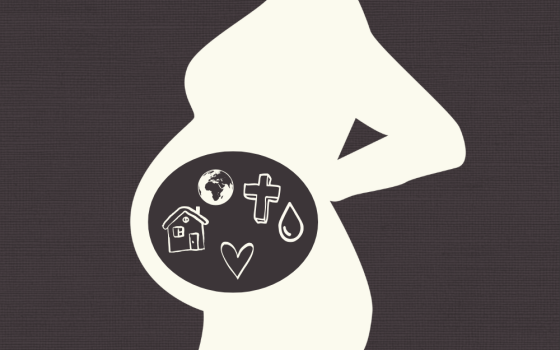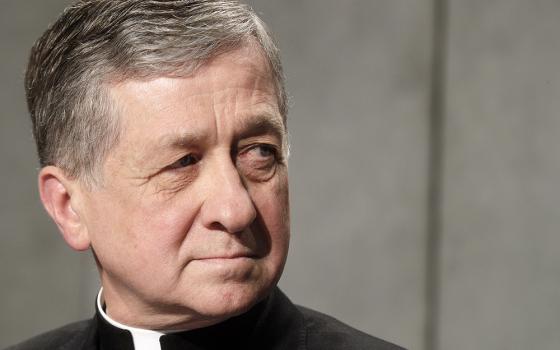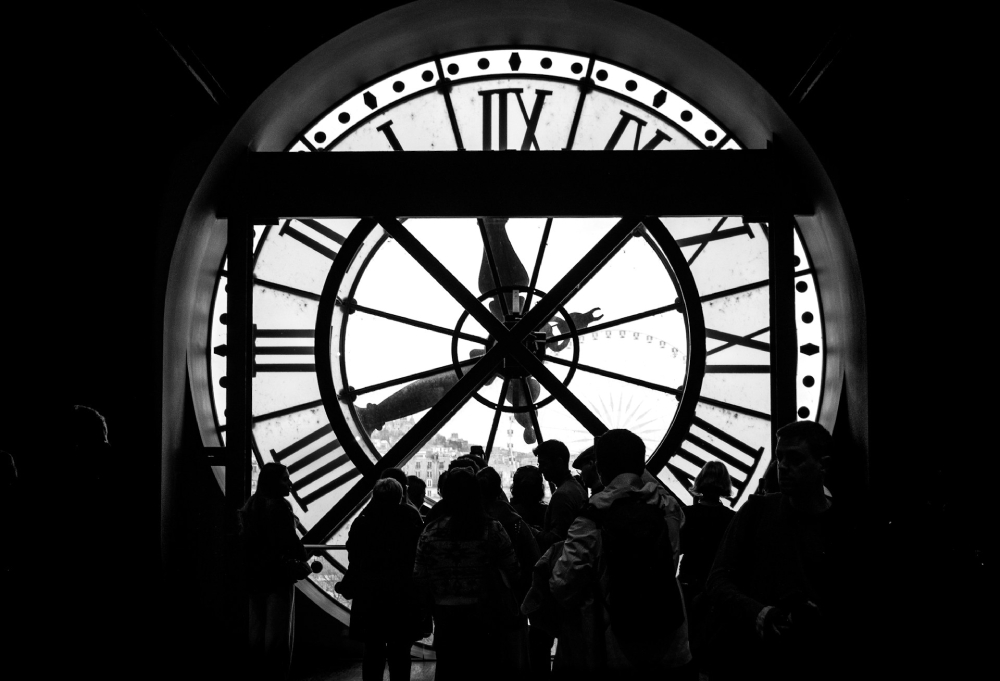
(Unsplash/Tom Podmore)
Recently, I found myself going to the movies twice in one week. I went to see "Downton Abbey: The Grand Finale" and "Hamilton," the movie version of the stage play. I enjoyed both immensely and they offered me an insight into the increasing polarity we are experiencing as a nation.
"Downton Abbey: The Grand Finale" is set in 1930 as the Crawley family continues to navigate a changing culture and political climate. The "upstairs" and "downstairs" communities continue, although some of the former servants have chosen to leave their preordained positions in society to strike out on their own. A couple of them return for this finale and you witness the willingness and awkwardness of the Crawley family in welcoming them "upstairs" to their dinner table.
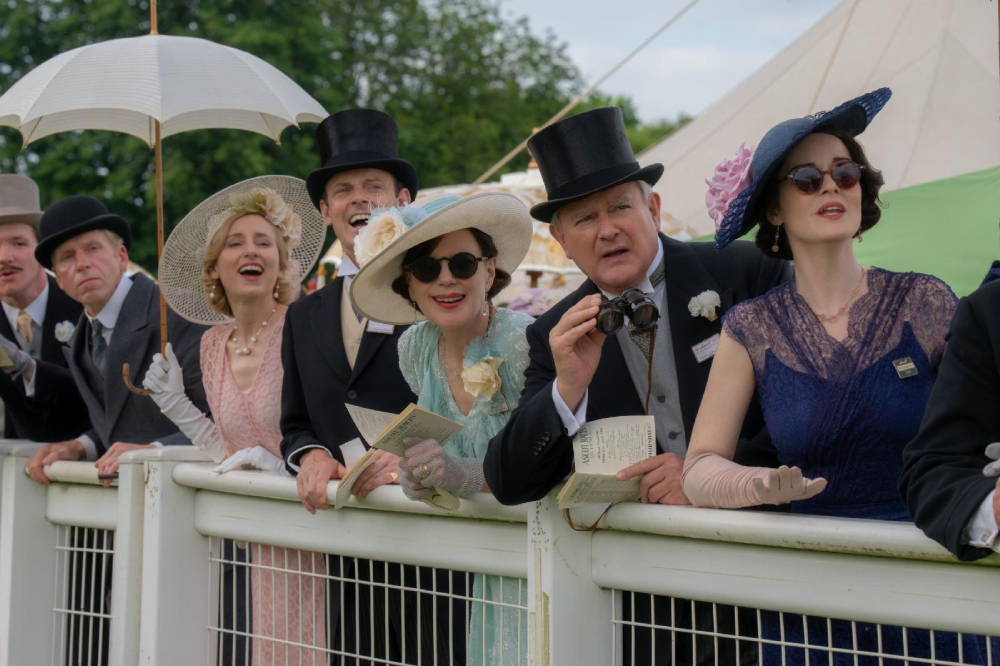
Laura Carmichael, Harry Hadden-Paton, Elizabeth McGovern, Hugh Bonneville, and Michelle Dockery star in a scene from the movie "Downton Abbey: The Grand Finale." (OSV News/Focus Features/Rory Mulvey)
Lady Mary, the heir to Downton Abbey, has filed for divorce and is quickly ousted from her position in the social circles of the time. There are other hints that things are changing — a potential sexual scandal and hints of a same sex relationship. However, expectations of how decent women and men should respond to such situations still prevail. One can sense the characters’ struggle to balance the traditional values of English society with the shifting values of a more liberal one — to move from a monarchical, stratified society to a more democratic, egalitarian one.
"Hamilton" is the story of the beginnings of our country, focusing on the life of Alexander Hamilton, an immigrant who became the first secretary of the Treasury under President George Washington. "Hamilton" spans the years from 1755 to 1804, when Hamilton’s wife, Eliza, dies. It portrays the struggle of the men and women who felt unjustly treated and unfairly taxed as subjects of England’s King George — a monarch who, holding all the power, attempted to squelch opposition.
Freedom is the colonists’ battle cry and the story tells of the break from England and the subsequent establishment of the United States and its Constitution. Alexander Hamilton is the key figure. He is by no means perfect, but in the end, when challenged to a duel by Aaron Burr, he does the honorable thing and lifts his gun to the sky — "throwing away" his shot — indicating that he wants to end the conflict without harm. However, Burr shoots anyway and history remembers him primarily as the man who killed Hamilton.
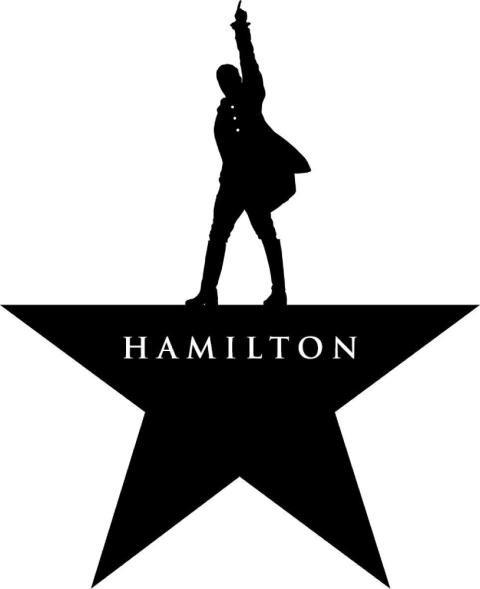
The play was written and performed in 2015 with an incredibly diverse cast and with rap as the musical genre, exemplifying another shift in culture and political climate from the time of our country’s beginnings.
After watching these productions, I was struck by how they spoke to some of the tensions that continue in our country and the world today as we continue the transition from autocratic to democratic forms of government — and how fast, yet long, it takes as we all live into an unpredictable future.
The authoritarian monarchy and the more traditional morality of the upper class remained in place through the years of "Downton Abbey" — 1930, which was less than 100 years from the time period portrayed by "Hamilton." The "Hamilton" production, with its diverse cast and unique musical style, came less than 100 years after 1930, when families like the Crowleys began to shift their worldview, consciousness and behavior.
Today, 100 years does not seem so long as we know more and more people who live to be 100 years-old or older. These individuals give us a perspective about what can happen in that amount of time, and hints about how to navigate the many changes occurring at an even more rapid pace given our technology. They help us understand how difficult it can be to move from a more prescribed way of being, with common expectations and experiences, to a more diverse and multifaceted approach to understanding who we are and how we live in our world.
Advertisement
Such a historical perspective offers me a different way of seeing what is happening today. Within what is a relatively short time span, the uniformity of an authoritarian monarchical political structure -— with its commonly held moral codes and class structures — gave way to a decentralized, democratic form embracing diversity and, therefore, potentially conflicting views of how we belong and live together.
Even as we live into the future, each of us have, to varying degrees within us, visceral memories of earlier value systems. The question is: How do we embrace our differences and move forward together in ways that respect each person’s needs, hopes and dreams?
As I reflect on that question, I found some hope in these two movies. Earl Crowley, although struggling a bit, welcomes a former servant to join the "upstairs" group at the family dinner table. Even though they knew each other, it was a different experience when they shared a common meal. Gathering around a common table, as we do when we celebrate the Eucharist, signifies an equality that exists even if we are still growing into what that means and how to live it. The Gospel is full of Jesus welcoming those considered "other" in his political and religious milieu.
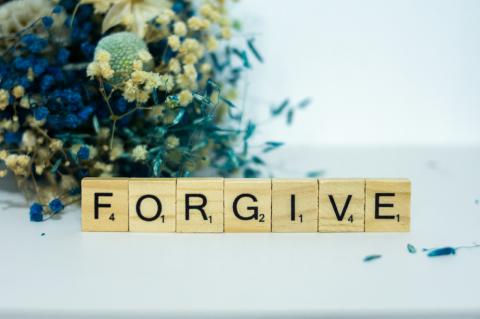
(Unsplash/Alex Shute)
And Eliza Hamilton forgives Alexander for a multi-year extramarital affair. Deeply hurt and offended by her husband’s disloyalty, she finds within herself a reservoir of forgiveness that allows her to move forward with him into the future. More recently, we witnessed Erika Kirk, who forgave the person who shot her husband, Charlie, witnessing to the profound message in Christianity that forgiveness is what we do.
I see hospitality and forgiveness as two ways forward during this unpredictable time.
Extending hospitality allows us to get to know each other at a deeper level: one that invites reciprocal sharing. It's an exchange that does not try to convert or change the other, but rather attempts to understand the values and context from which each of us comes.
Forgiveness — of self and others — provides greater freedom to admit when one is wrong or revengeful. Whether asking for forgiveness or offering it, a spaciousness is created that allows us to see things differently: to take a step back and reassess what is truly going on, to appreciate how long it takes to communicate in a changing culture.
As we ‘take a long loving look at the real’ and enter into contemplation, let us drop down and encounter Divine Love, experiencing the welcoming and forgiving presence. Let us bring that experience into our lives and live it out in how we respond to what is going on today in our seemingly unforgiving and inhospitable world.




